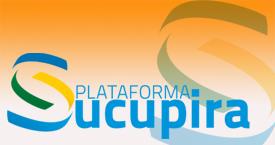Lawyers in telework
a study on the impact of the COVID-19 pandemic on lawyers work in the state of Rio de Janeiro
DOI:
https://doi.org/10.33239/rjtdh.v4.96Abstract
This paper analyzed the consequences of the COVID-19 pandemic for lawyers, based on empirical research conducted with 4437 professionals in the state (de-identified) at the end of 2020. Telework was treated as a kind of home-based work as classified by the International Labor Organization. The study showed that the profession started to be exercised mostly in an improvised way at the lawyers' homes, with the use of several technological tools. The lawyers had an ambiguous feeling regarding telework. There was an increase in work for some and a reduction for others, whose economic consequences are also felt in differently, being mostly self-employed professionals. The absence of displacement to work was pointed out as a positive point. Negative aspects related to the sensation of worsening health and the lack of contact with colleagues were highlighted. Some professionals have already returned, at the time of the research, to perform the activities in person, but still keep part of the functions in telework, which may indicate a trend for the post-pandemic period. The advocacy prefers the adoption of a hybrid regime at the end of the health crisis. The conclusion of the research is that the COVID-19 pandemic has hit the legal profession hard, either in economic terms, bringing crisis to the majority and advantages to the few, or in relation to the way they perform their professional activities, carried out almost entirely home-based, or even strongly affecting the perception of physical and mental health of the category.
Downloads
References
BRUNO, Fernanda. Máquinas de Ver Modos de Ser Vigilância Tecnologia e Subjetividade. Porto Alegre: Sulina, 2013.
CARELLI, Rodrigo de L.; CARELLI, Bianca N. B. Além da Uber: uma comparação com o mercado de trabalho dos advogados. Revista Jurídica Trabalho e Desenvolvimento Humano, Campinas, v. 1, n. 1, p. 128-150, 2018.
CLARK, Pillita. The looming legal minefield of working from home. Financial Times, 2020. Disponível em: <https://amp.ft.com/content/35ba3750-7b38-4fda-bd8c-e0c0228852ed?segmentid=acee4131-99c2-09d3-a635-873e61754ec6&__twitter_impression=true>. Acesso em: 03 de fev. 2021.
EUROFOUND, INTERNATIONAL LABOUR ORGANIZATION (ILO). Working anytime, anywhere: The effects on the world of work. – Geneva: Publications Office of the European Union, Luxembourg, and the International Labour Office, 2017.
DEFILIPPIS, Evan; IMPINK, Stephen Michael; SINGELL, Madison; POLZER, Jeffrey T.; SADUN, Raffaella. Collaborating During Coronavirus: The impact of Covid-19 on the nature of work. Cambridge: Nber, 2020. Disponível em: <http://www.nber.org/papers/w27612>. Acesso em: 27 jan. 2021.
FINNEGAN, Matthew. The New Normal: When work-from-home means the boss is watching. Computer World, 2020. Disponível em: <https://www.computerworld.com/article/3586616/the-new-normal-when-work-from-home-means-the-boss-is-watching.html>. Acesso em: 03 de fev de 2021.
GHIONE, Hugo Barretto. ¿Es necesario legislar sobre teletrabajo?. Disponível em: <http://hugobarrettoghione.blogspot.com/2020/11/es-necesario-legislar-sobre-teletrabajo.html?m=1>. Acesso em 03 de fev. 2021.
HAN, Byung-Chul. Psicopolítica – O neoliberalismo e as novas técnicas de poder. Belo Horizonte: Editora, Âyiné, 2018.
HERN, Alex. Shirking from home? Staff fell the heat as bosses ramp up remote surveillance. The Guardian, 2020. Disponível em: <https://www.theguardian.com/world/2020/sep/27/shirking-from-home-staff-feel-the-heat-as-bosses-ramp-up-remote-surveillance>. Acesso em: 03 de fev. 2021
INTERNATIONAL LABOUR ORGANIZATION (ILO). Teleworking during the COVID-19 pandemic and beyond A practical guide. Geneva: International Labour Office, 2020.
INTERNATIONAL LABOUR ORGANIZATION (ILO). Working from home: From invisibility to decent work. Geneva: ILO, 2021.
LAZZARATO, Maurizzio. Fascismo ou revolução? O neoliberalismo em chave estratégica. São Paulo: N-1 Edições, 2019.
TAVARES, Ana Isabel. Telework and Health effects review. DOI:10.5430/ijh.v3n2p30. 2017. Publicado em: https://doi.org/10.5430/ijh.v3n2p30 : Acesso em: 01 de fev. de 2021.
TESTONI, Marcelo. Tá de boa no home office? Pois esteja pronto para mais monitoramento online. Uol, 2020. Disponível em: <https://www.uol.com.br/tilt/noticias/redacao/2020/10/16/ta-de-boa-no-home-office-pois-esteja-pronto-para-mais-monitoramento-online.htm>. Acesso em: 03 de fev de 2021.
WEBBER, Ashleigh. PwC facial recognition tool criticized for home working privacy invasion. Personnel Today, 2020. Disponível em: <https://www.personneltoday.com/hr/pwc-facial-recognition-tool-criticised-for-home-working-privacy-invasion/>. Acesso em: 03 de fev. 2021
Downloads
Published
Issue
Section
License
Copyright (c) 2021 Rodrigo de Lacerda Carelli, Jackeline Cristina Gameleira Cerqueira da Silva, Carlos Arthur Giannini Domingues

This work is licensed under a Creative Commons Attribution 4.0 International License.
How to Cite
- Abstract 2679
- PDF (Portuguese) 978
- HTML (Portuguese) 44


















